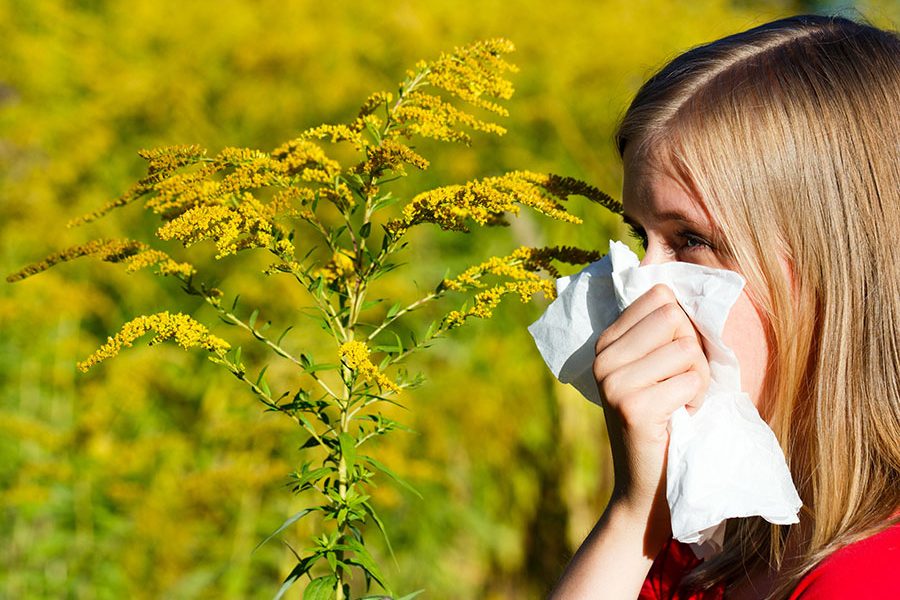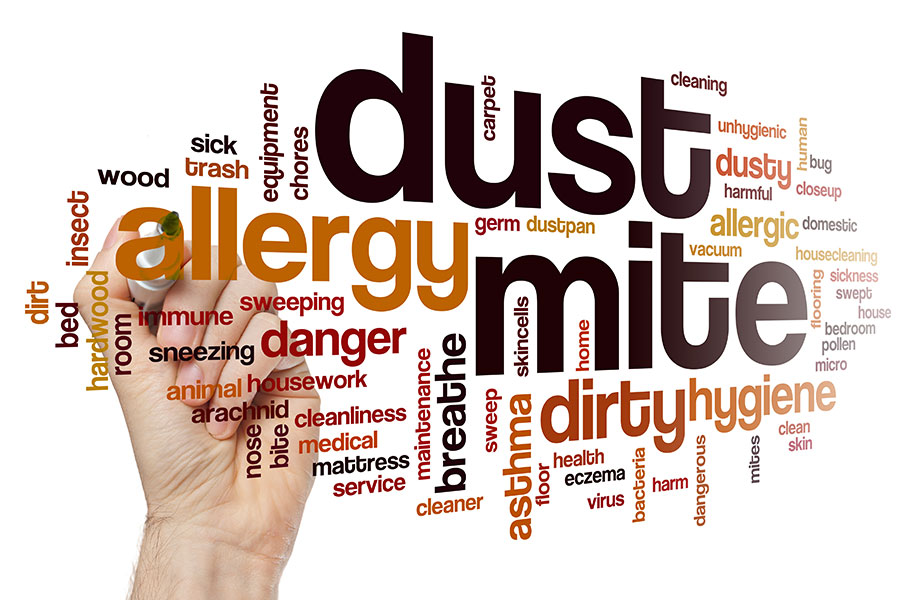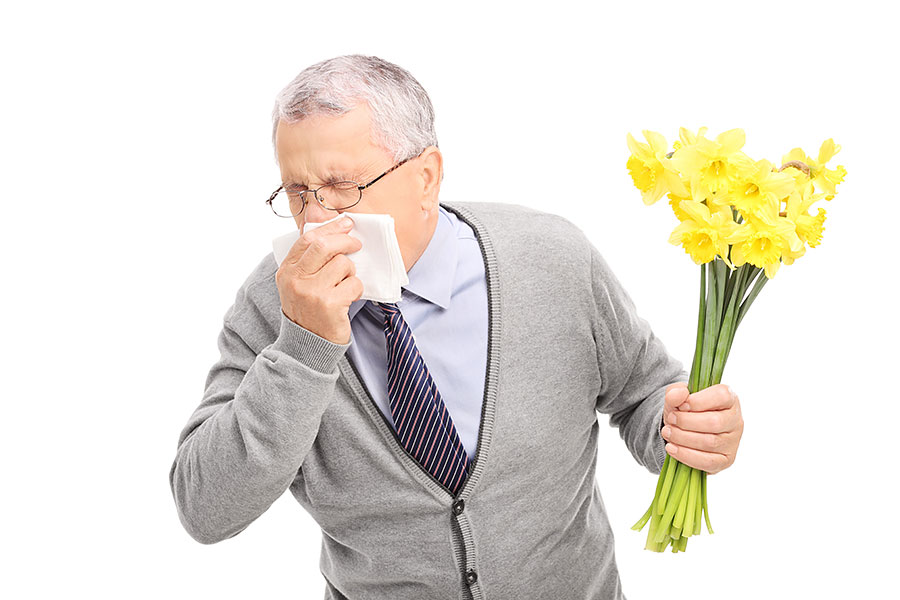The end of summer can be the most uncomfortable time for the millions of Americans who have an allergy to ragweed. A ragweed plant lives a single season, but just one plant can produce one billion grains of pollen.(1) Ragweed flowers mature and release beginning in mid-August. While ragweed mainly grows in rural areas, its pollen grains can travel for miles.(1)
Symptoms of an allergy to ragweed pollen include:
- Sneezing
- Stuffy or runny nose
- Itchy eyes, nose, and throat
- Itchy or puffy eyes
- Postnasal drip(1)
For some people, ragweed can also cause the skin condition, allergic contact dermatitis.(2) While allergy symptoms from ragweed are generally experienced mid-August through the end of September, the American Academy of Allergy, Asthma and Immunology states that in many parts of the U.S. now people are experiencing symptoms between early August through the end of October.(2) Various studies suggest that higher carbon dioxide levels and rising temperatures play a role in the longer growth time of allergen-producing plants, such as ragweed.(2)
People with this allergy can track the pollen count in their area on the National Allergy Bureau website https://pollen.aaaai.org/ and stay inside during high count days. Pollen count peaks in the morning. Other suggestions from the American Academy of Allergy Asthma and Immunology include: taking shoes off outside, covering hair when outside, and using a certified air filter inside the house.(1)
Besides avoidance, over-the-counter medications can help many people deal with allergy symptoms. These include nasal corticosteroids, antihistamines, mast cell stabilizers and decongestants.(3) Allergenic immunotherapy (allergy shots) involve injections of allergens in an increasing dose over a period of time, helping the patient become progressively less sensitive to an allergen, such as pollen.(3)
Xtract Solutions offers cloud-based software, designed to organize the allergy practice, from initial testing through to successful completion of immunotherapy.
(1) Asthma and Allergy Foundation of America, Ragweed Pollen Allergy, https://www.aafa.org/ragweed-pollen/
(2) American Academy of Allergy, Asthma and Immunology, Ragweed Plants Packed with Pollen, https://www.aaaai.org/
(3) Asthma and Allergy Foundation of America, Allergy Treatments, https://www.aafa.org/allergy-treatments/




